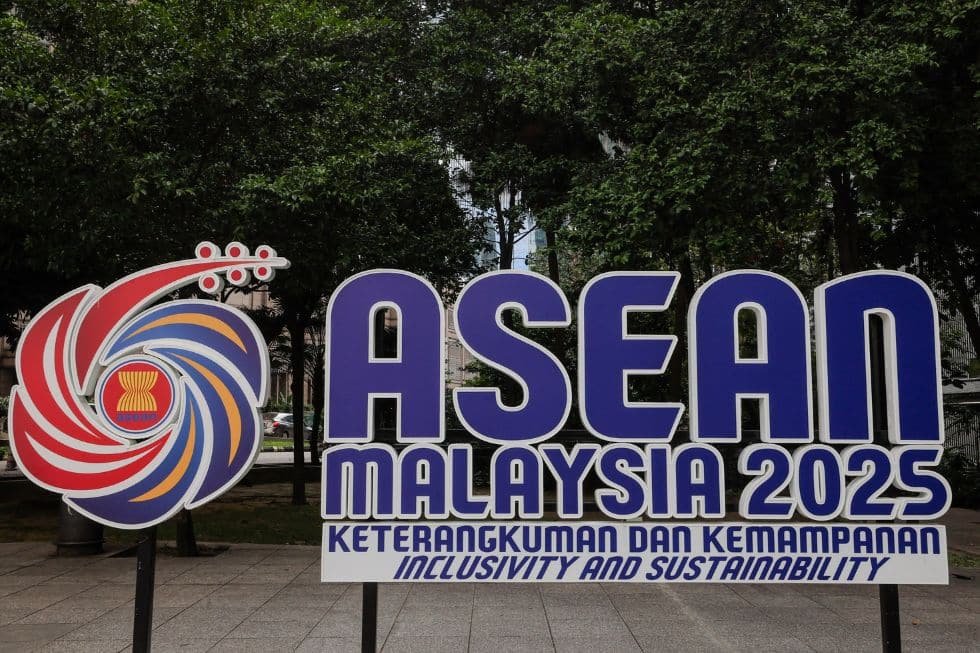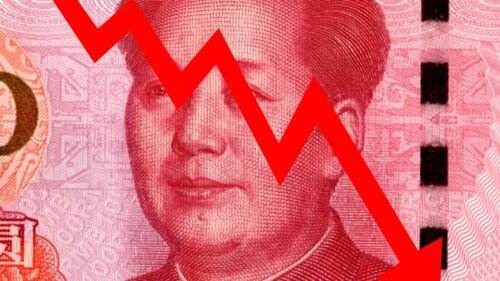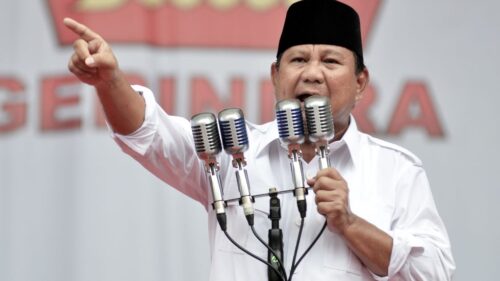At the end of May, I traveled to Malaysia to attend the ASEAN-GCC-China Summit. Although the official agenda centered on multilateral economic cooperation, it quickly became clear that geopolitics — particularly China’s growing assertiveness — had begun to dominate the proceedings. The summit provided a glimpse into the direction global economic cooperation may take and how political ambitions continue to complicate these efforts.
Beijing’s propaganda-first diplomacy
China’s foreign diplomacy often prioritizes optics over substance. Chinese leaders frequently structure official visits to yield material for domestic propaganda rather than actual policy breakthroughs. When President Xi Jinping visited France last year and failed to secure an electric vehicle (EV) export deal with the European Union, he padded the itinerary with visits to Hungary and Serbia — two “brother” countries friendly to Beijing. The Chinese propaganda machine subsequently portrayed the trip as a success.
Xi’s trip to Southeast Asia in April followed the same formula. Vietnam, a historical rival of China and a vocal critic within ASEAN, offered little progress on major economic agreements. To offset this, Xi added a stop in Cambodia, a close Chinese ally. Cambodian Prime Minister Hun Manet, son of former Prime Minister Hun Sen, publicly declared that ASEAN would not permit anti-China narratives at the institutional level. Manet’s statement prompted the Chinese domestic media to once again praise the significant achievements of this visit in a dramatic fashion, while completely overlooking the cold reception they encountered in Vietnam.
Despite these efforts, China’s real focus remains on the region’s centrist governments, particularly Malaysia. At the summit, Malaysian Prime Minister Anwar Ibrahim outlined a position that captured the ASEAN consensus, which I roughly summarized as: buy Chinese goods, befriend the Americans and maintain neutrality. While many in China may reject this approach, ASEAN countries are increasingly seeing it as pragmatic — especially amid China’s economic slowdown.
Malaysia illustrates this shift. Though China remains its largest trading partner and has a sizable diaspora there, Malaysia’s export-oriented economy sends nearly 60% of its goods to the United States. Its leadership has made clear that it will not jeopardize ties with Washington to appease Beijing. As Malaysia continues to modernize its industrial base, its ability to absorb China’s excess capacity — ranging from socks to EVs — is limited.
China’s outdated strategic playbook
Today’s world is shaped not by rigid geopolitical alliances but by deep flows of transnational capital. States now act as tools for global capital to manage and extract resources across borders. This economic reality has overtaken the Cold War-era view that emphasized ideological blocs and zero-sum diplomacy. Countries now seek growth and profitability, not confrontation.
Despite this shift, Beijing clings to an outdated model. Chinese Premier Li Qiang arrived at the summit seeking to export China’s overcapacity, but failed to account for Malaysia’s own manufacturing ambitions. Rather than forging partnerships, China is increasingly competing with the economies of the Global South. Meanwhile, these southern nations have built more effective relationships with developed countries — combining raw materials with Western capital.
At high-level summits like this one, real diplomacy often happens outside formal sessions — over tea breaks, informal chats or corridor encounters. These moments allow seasoned politicians to resolve sensitive issues quickly.
Former Premier Li Keqiang, who died of a heart attack in 2023, effectively utilized the “free time” outside of formal talks, reflecting his wisdom as a politician. In contrast, neither Xi Jinping nor Li Qiang has demonstrated this political agility. Their stiff, scripted approach leaves little room for improvisation or personal connection — an increasingly critical shortcoming in global politics.
Image-driven diplomacy and its consequences
Chinese diplomats place disproportionate importance on the opening stages of international summits. When cameras roll and reporters take notes, they project an image of strength and defiance. Once the doors close for real negotiations, they fall silent. At the 2021 China–US High-Level Dialogue in Alaska, 1.4 billion Chinese civilians living in an internet blockade saw the proud picture of former State Councilor Yang Jiechi angrily scolding former US Secretary of State Antony Blinken: “The United States has no right to talk to China from a high position, and the Chinese people will not buy it.”
This carefully choreographed confrontation became a symbol of China’s “wolf warrior” diplomacy. Yet what happened after the cameras left the room tells a different story. Behind closed doors, Chinese negotiators made major concessions and reportedly asked US officials to ease export controls on high-tech goods. Ordinary Chinese citizens never heard about these discussions, nor did they learn how Yang Jiechi softened his tone once the media spotlight disappeared.
Against the backdrop of worsening China–US relations, Premier Li Qiang aimed to use this summit to solidify China’s influence in Southeast Asia and expand it into the Gulf. In his opening remarks, he highlighted that China, ASEAN and the Gulf Cooperation Council (GCC) collectively account for a quarter of the world’s population, yet their combined trade volume makes up only one-twentieth of global trade. He framed this disparity as a major economic opportunity.
However, this vision overlooks a key reality. ASEAN, though traditionally composed of non-aligned states, has in recent years grown more cohesive in its approach to regional security and economic policy. To expand its influence, China would need to undermine that unity. In effect, Beijing seeks to divide ASEAN from within.
China continues to rely on a bloc of loyal partners within ASEAN — namely Cambodia, Laos, Myanmar and Thailand. These governments remain deeply dependent on Chinese investment and treat Chinese capital as a lifeline. Yet despite their loyalty to Beijing, these countries wield limited influence within ASEAN.
By contrast, member states such as the Philippines and Vietnam have gained stronger leadership roles within the organization. These governments increasingly shape ASEAN’s collective agenda and maintain firm opposition to Beijing — especially regarding territorial disputes in the South China Sea, which they view as vital to their sovereignty and national security.
Just days before the summit, tensions in the South China Sea flared again. During the meeting, Li Qiang attempted to pressure Philippine President Ferdinand “Bongbong” Marcos Jr. through Malaysian Prime Minister Anwar Ibrahim. But Marcos, who interrupted Li during last year’s ASEAN+3 summit, did not back down. In fact, he verbally outmaneuvered Li, leaving the Chinese premier momentarily stunned. Anwar, caught in the middle, tried to downplay the exchange, calling it a “communication that touched on the essence.” But the reality amounted to little more than a shouting match.
Li Qiang had hoped to sway the centrists and block a unified ASEAN stance on the South China Sea. To that end, he visited Indonesia before arriving in Malaysia to secure President Prabowo Subianto as an “inside man”. However, Subianto is a political “old hand” and has even more political experience than Li Qiang.
At the same time as Li’s visit, French President Emmanuel Macron was also in Indonesia. According to an Indonesian think tank researcher I was ironically sat next to, Subianto may have utilized Chinese financial incentives to purchase Airbus aircraft from France, profiting from both relationships through shell companies controlled by his allies.
China’s shrinking leverage in the Global South
Given current trends, ASEAN countries are less concerned with choosing the stronger power between China and the United States than with avoiding the greater risk. Increasingly, that risk comes from China. Beijing’s recent foreign policy has pushed the country toward de facto exclusion from the global economic system. While disputes between nations are common, long-term success depends on staying within the rules-based system that allows trade, investment and cooperation to continue. If China drifts too far outside that system, its development will suffer — not gradually, but sharply.
Although China now ranks as the world’s second-largest economy, it has yet to construct an alternative international order of its own. Unlike the Soviet Union, which once offered a competing bloc, China lacks both the institutional infrastructure and the ideological pull to do the same. Despite launching the Belt and Road Initiative (BRI) more than a decade ago, Beijing still struggles to convince many developing nations — ASEAN members included — that joining a China-led economic order makes more sense than aligning with developed countries that promise stronger, more stable returns. For many of these nations, the real question has become whether to link their future to a “poor country system” or to join the “rich country club.”
At this summit, China clearly sought to woo ASEAN countries. Yet Beijing seemed to overlook a critical point: when an economy slows for an extended period, its influence inevitably declines. A decade ago, countries could grow rapidly simply by aligning themselves with Chinese markets and supply chains. But under the confrontational tone of “wolf warrior” diplomacy, China no longer exports economic opportunity. It increasingly exports political and financial risk. Ongoing macroeconomic instability has only deepened this perception.
Beijing’s global spending through the BRI has already tightened significantly. In this new climate, countries in the Global South have begun to question what benefits China can still offer. The balance between competition and complementarity has shifted. China now competes directly with ASEAN nations in manufacturing and exports, eroding what used to be mutual advantages.
Li Qiang focused heavily on EV exports during the summit, but his message was met with skepticism. Since 2024, Indonesia has raised tariffs on Chinese electric vehicles. Vietnam passed new domestic protection policies. Malaysia launched investigations into Chinese state-owned enterprises, targeting their expansion in 5G infrastructure and freezing data development projects. These moves reflect a broader concern that Chinese companies could dominate strategic sectors without offering lasting local benefits.
Chinese state media continues to blame the United States for blocking China at the high end of the global supply chain. But ASEAN countries are asking a more pragmatic question: if the US is tightening its grip on China, do they want to be collateral damage? Would being too close to China expose them to the same restrictions? In fact, if China loses its foothold in global supply chains, many ASEAN and Global South nations may view that as an opportunity to move into the low-end manufacturing space China currently occupies.
The joint statement issued at the end of the summit reflected this cautious balancing act. At China’s request, Malaysia included language suggesting ASEAN would finalize Free Trade Zone 3.0 with China “as soon as possible.” But without a timeline or binding terms, the statement amounted to diplomatic theater. Similarly, ASEAN added a vague call for an Israeli-Palestinian ceasefire at the GCC’s request — another symbolic gesture aimed at encouraging future investment from Gulf states rather than proposing any actionable policy.
ASEAN typically holds two summits each year. The smaller one takes place in the first half of the year, while the “big summit” in the second half draws leaders from the United States, Japan, South Korea, Australia and even the UN Secretary-General. Chinese premiers have historically preferred the larger, more prestigious meeting. Yet Li Qiang attended the smaller summit this time, likely to avoid sharing a stage with US President Donald Trump, who is expected at the fall gathering. This off-peak visit suggests that Beijing’s confidence in shaping multilateral diplomacy may be fading — along with its ability to project power in the region.
The limits of “wolf warrior” diplomacy
Li Qiang, by personality, seems more a bureaucrat than an ideologue. He appears less interested in reshaping China’s global role than in fulfilling President Xi Jinping’s directives. As such, his trip was a success on paper. ASEAN did promise to “strengthen cooperation,” which allows Li to report success back to Beijing.
However, China’s diplomatic corps continues to reflect the rigid nature of its political system. Unlike democratic leaders who must engage global audiences to win domestic approval, Chinese officials answer only to President Xi Jinping. Despite representing 1.4 billion people, they do not need to inform or persuade them. They owe the public nothing — even as their salaries, benefits and travel budgets come from Chinese taxpayers.
Most Chinese citizens remain unaware of what deals Vice Premier He Lifeng made with US Treasury Secretary Scott Bessent in Geneva this May, or what China may have conceded in ongoing trade negotiations. The government deliberately withholds these details. Instead, Chinese media portrays every summit as a resounding diplomatic victory.
Yet many Chinese citizens quietly wonder: if China keeps winning on the international stage, why do their personal lives keep getting harder? Why does their disposable income shrink while their government claims success abroad? The distance between China’s diplomatic narrative and the lived experience of its people continues to grow. As that gap widens, the sustainability of Beijing’s current foreign policy strategy appears increasingly uncertain.
[Kaitlyn Diana edited this piece]
The views expressed in this article are the author’s own and do not necessarily reflect Fair Observer’s editorial policy.
Support Fair Observer
We rely on your support for our independence, diversity and quality.
For more than 10 years, Fair Observer has been free, fair and independent. No billionaire owns us, no advertisers control us. We are a reader-supported nonprofit. Unlike many other publications, we keep our content free for readers regardless of where they live or whether they can afford to pay. We have no paywalls and no ads.
In the post-truth era of fake news, echo chambers and filter bubbles, we publish a plurality of perspectives from around the world. Anyone can publish with us, but everyone goes through a rigorous editorial process. So, you get fact-checked, well-reasoned content instead of noise.
We publish 3,000+ voices from 90+ countries. We also conduct education and training programs
on subjects ranging from digital media and journalism to writing and critical thinking. This
doesn’t come cheap. Servers, editors, trainers and web developers cost
money.
Please consider supporting us on a regular basis as a recurring donor or a
sustaining member.
Will you support FO’s journalism?
We rely on your support for our independence, diversity and quality.








Comment